Nigeria’s nation building paradox
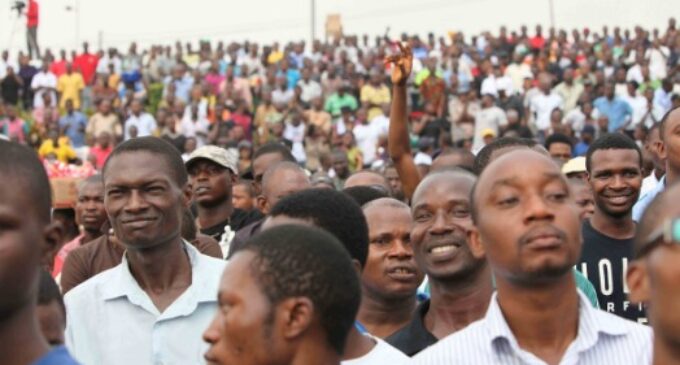
BY SANI MUHAMMAD UZAIRU
There is no question that Nigerians are one of the most patriotic and hardworking nationals on the continent, yet least appreciated, especially by their government. Today, a large chunk of the populace continue to wallow in abject poverty despite the country’s rich human and material resource. Although pathetic, this sordid trend thrives because, when availed the opportunity to serve, those entrusted with positions of trust and power have umpteen times bled the country dry and failed the docile flag-waving masses woefully.
And so I ask, is our patriotism just a sheer frenzied outburst of sentiments or a genuine commitment of a lifetime to the attributes that hold us together as a country? If patriotism is about a cause greater than self, a love and a duty towards one’s nation as epitomized in good citizenship, then at what time will Nigerians stand up to fulfil their collective responsibility and loyalty of confronting the challenges that have stagnated nation building, and perchance lift this country from the abyss of the human development index?
Though sad to say, the passivity of the masses, who are central, in nation building could somewhat be explained in terms of the complex phenomenon where their efforts are exploited or even wasted by politicians who implement policies. To deconstruct this phenomenon, we might as well reflect on the poem ‘Building The Nation’ by Henry Muwanga Barlow, a Ugandan poet, and decipher how the ruling class, whose conscience have been corrupted by power and obscene wealth have useless the role of the masses in nation-building.
The poem, ‘Building The Nation’, by Henry Muwanga Barlow
Today I did my share in building the nation.
I drove a Permanent Secretary to an important, urgent function
In fact, to a luncheon at the Vic.
The menu reflected its importance
Cold bell beer with small talk,
Then fried chicken with niceties
Wine to fill the hollowness of the laughs
Ice-cream to cover the stereotype jokes
Coffee to keep the Permanent Secretary awake on the return journey.
I drove the Permanent Secretary back.
He yawned many times in the back of the car
Then to keep awake, he suddenly asked,
Did you have any lunch friend?
I replied looking straight ahead
And secretly smiling at his belated concern
That I had not, but was slimming!
Upon which he said with a seriousness
That amused more than annoyed me,
Mwananchi, I too had none!
I attended to matters of state.
Highly delicate diplomatic duties you know,
And friend, it goes against my grain,
Causes me stomach ulcers and wind.
Ah, he continued, yawning again,
The pains we suffer in building the nation!
So the Permanent Secretary had ulcers too!
My ulcers I think are equally painful
Only they are caused by hunger,
Not sumptuous lunches!
So two nation builders
Arrived home this evening
With terrible stomach pains
The result of building the nation – in different ways.
In the poem, a top public servant claims he attended a significant government meeting, and whether it was truly meant to be an important meeting or a luncheon with his cronies, all that transpired at the meeting was eating and drinking at the expense of the hapless taxpayer. What was essentially supposed to be an agenda for such an august meeting obviously turned out to be a menu for a delicious dinner: cold beer, wine, fried chicken, coffee and ice cream. What a grand style of planning for the lives and future of the people of a nation!
Lamentably, being a subordinate in the government work setting is like a curse. The boss in the poem feasts in a luxury hotel with his cronies while his poor driver is left sitting, yawning, drowsing and fasting ithe n official vehicle. This situation calls up the lyrics of the late reggae maestro, Bob Marley, ‘Them Belly Full but We Hungry.’ Whilst the driver drove his boss home, the boss suffered stomach upset – because of too much food and drink – and the driver suffered stomach ulcer due to hunger.
On the return journey, the insensitive, greedy, hypocritical and shameless boss mocked his driver by saying, ‘the pains we suffer in building the nation.’
And how does this poem finds applicability in Nigeria, you might wonder. Here is how:
The poem is a grim reminder for us of the stark realities in Nigeria: the unfairness, inequity, injustice and corruption in the corridors of power. While the average citizen famishes and languishes in abject poverty, our top government officials bask in opulence.
Now to draw parallelism, think of the unfortunate altercation between communications minister, Barrister Adebayo Shittu, and his media assistant, Mr. Victor Oluwadamilare. That sobering incident is full of reminiscences about the poem, ‘Building The Nation.’ The relationship between the minister and his media aid could aptly represent the two strands of nation builders that are in Nigeria today. On one side, we have the local masses represented by Mr. Victor Oluwadamilare; while on the other hand, we have politicians, represented by Barrister Adebayo Shittu who are busy squandering public funds which should be used to rebuild their nations. The masses are the hard-working people whose benevolence is easily taken for granted by those in power. Barrister Shittu eats extravagantly but Mr. Oluwadamilare does not eat anything at all. The eating might represent not only food, but the utilization of other materials as well.
The role of both classes was to build their nation. For instance, Mr. Oluwadamilare was the image maker of the minister, and to an extent the communication ministry, while Barrister Shittu busied himself with policy formulation and other oversight functions at the ministry – thus, they worked in synergy for nation-building.
Though both of them are supposed to mutually benefit from the national wealth, Barrister Shittu exploits the aide. He simply became a parasite who fed on the national resource at the expense of Mr. Oluwadamilare – whilst Mr. Oluwadamilare served Barrister Shittu diligently, the minister in spite of his ostentatious lifestyle and earning in excess of N 50 million and $ 800,000 in salaries and estacodes, respectively, in addition to 12 luxury houses, N 93 million printing press, allegedly refused to pay Mr. Oluwadamilare his salaries and other entitlements, to the extent of making him a squatter in Abuja, causing difficulties in his marriage and almost starving him to death.
Essentially, Barrister Shittu instead of building the nation was rather busy building his own life whilst Mr. Oluwadamilare was left in hunger and disillusionment. Alas, this country parades many of Barrister Shittu’s variants of nation builders.
And, that is the sad reality in the Nigerian state today, where public service has sadly turned into self-service, oppressive of the common man and destruction of the country. Each time I went through the lines of the poem, I visualize the archetypal Nigerian boss in his dealings with national affairs, his subordinates and by extension the masses.
Is this the promise of independence? Do we really feel a sense of pride when we sing the third stanza of our independence national anthem: ‘O God of all creation, Grant this our one request, Help us to build a nation, Where no man is oppressed, And so with peace and plenty, Nigeria may be blessed. But do we really demonstrate that the ‘Help us build a nation where no man is oppressed’ has any real meaning for us?
Ours is a rich and blessed country, nonetheless we fall in the ranks of the failing nations of the world. With our oil and other rich natural resources, it is no exaggeration that even the unborn in every family deserve to have a healthy bank account. Our failing nation needs fixing and here are just a few of the things that might help the fixing process.
Probity and discipline
It is undeniable that one of the core reasons why we perform so woefully at nation-building is dearth of discipline in whatever that has been entrusted to us. This is not only limited to political office holders. At every sphere or level, the canker is ubiquitous: judiciary, legislators, police, university lecturers and institutional heads. If we wish to do well at nation-building, it is necessary to have public servants that respect whatever belongs to the state: money, property, work hours etc. The so-called public servant in Nigeria considers nothing bad in utilizing what belongs to the taxpayer for his private use, in the most bizarre circumstances. For successful nation-building, there must be no room for a negotiation of principles. In matters of principle, stand like a rock, to borrow the words of Thomas Jefferson. And, William Arnot says: ‘If honour be your clothing, the suit will last a lifetime.’ Let us therefore carry out our public services honourably.
Accountability and responsibility
In Nigeria today, people and institutions hate to take responsibility for their actions or failures. Even when they fail the nation, they expect to be rewarded rather than being asked to quit office. And to evade accountability, it is common for the political elites to surround themselves with sycophants. A clear case here is the Rasheed Maina saga. In the words of Ronald Reagan: ‘We must reject the idea that every time a law is broken, society is guilty rather than the lawbreaker. It is time to restore the American precept that each individual is accountable for his actions.’ If those in positions of authority commit crimes or fail to deliver the expected goods, we should not hesitate to show them the RED CARD, apologies to Oby Ezekwesili.
Sensitise and enable our civil society
Today, we need civil societies in the mould of defunct Save Nigeria Group that led the charge for good governance in the Yar’adua and even Jonathan era. Regrettably, most of civil societies we currently parade are slavish and lack the enabling environment to operate in, much less challenge the infractions and excesses in high places. This creates breeding ground for collusion and exploitation. If priority is given to enabling civil society, this will have an impact on the effort to checkmate corruption and it will increase transparency in official positions. Benjamin Franklin once opined: ‘A nation of well informed men who have been taught to know and prize the rights which God has given them cannot be enslaved. It is in the region of ignorance that tyranny begins.’
I will conclude by positing that it is, of course, not too late for Nigeria to fix its problems. However, if the necessary political will is found wanting, the populace must raise a red flag against the ruling class’s hypocritical nation building where they pretend to have the welfare of the masses at heart, while in the real sense capitalize on their efforts. Nation building must be practical otherwise the masses must wake up from their slumber and legitimately demand the rights things are done. This, when enforced, will be a significant step towards genuine nation building where national resources will benefit not only Barrister Shittu and his variants, but also Mr. Oluwadamilare and other beleaguered masses.
Uzairu is a political commentator and can be reached via [email protected] and on Twitter: @enigmatic_sani
Views expressed by contributors are strictly personal and not of TheCable.








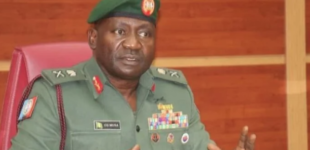
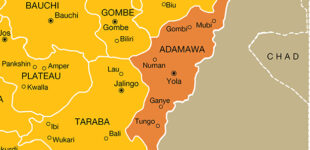
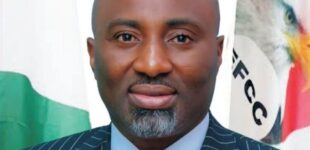
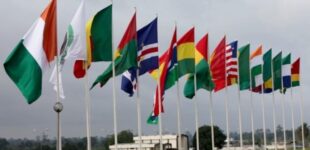


There are no comments at the moment, do you want to add one?
Write a comment